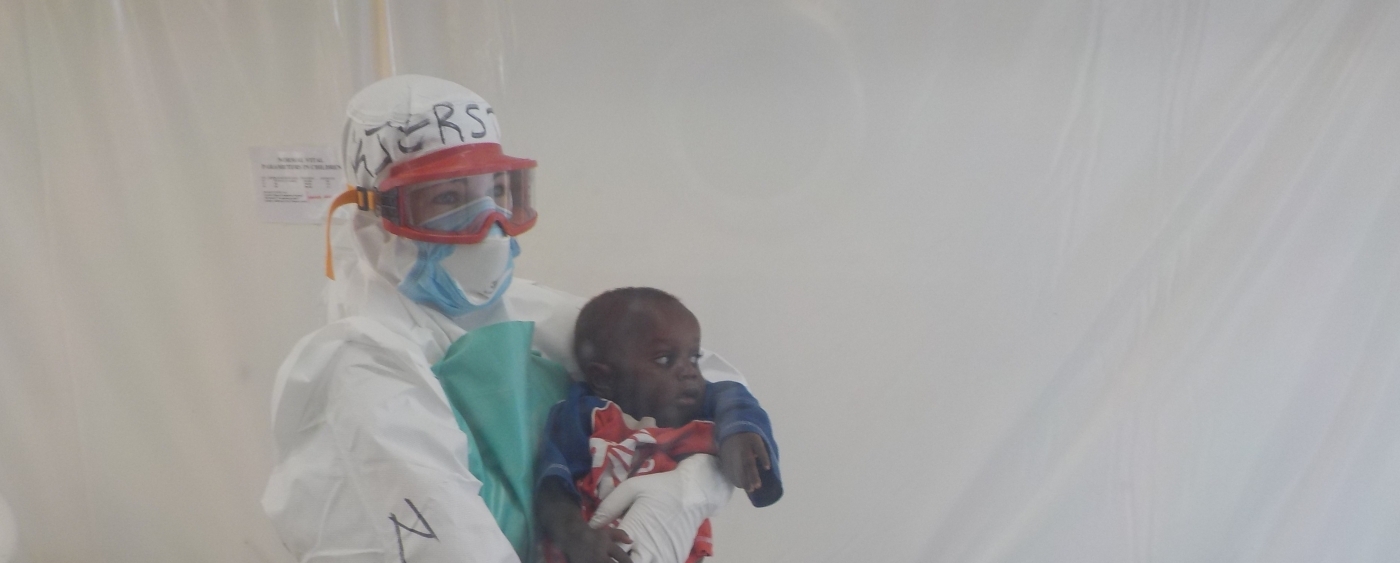Emergency: Ebola, a growing crisis in DRC
Published 22nd July 2019
In the Democratic Republic of Congo, the second-worst outbreak in history is spreading quickly.
Doctors of the World is concerned about the spread of Ebola that is affecting a growing number of areas in DRC.
Our team is working in Butembo and Katwa, in North Kivu, the main centres of contagion. The most recent data from the Ministry of Health shows the escalation of Ebola cases in DRC.
2,484 cases of Ebola have been confirmed, and 1,698 people have died due to the outbreak. The numbers are likely to be higher as cases aren’t been referred due to mistrust in the system and fear of being stigmatised.
The geographical location of the DRC makes the situation more complex. Bordering with nine countries, the DRC risks becoming the epicenter of an international outbreak. “The areas most impacted by the epidemic are close to neighboring countries like Uganda, where there has already been a case, and Rwanda”, says Ricardo Angora, coordinator of mental health and psychosocial support in the DRC for Doctors of the World.
Ebola infects humans through close contact with animals and people. It can spread very quickly, through small amounts of bodily fluids and through contact with contaminated environments. This creates a series of challenges in containing the outbreak.

We are currently supporting the Ministry of Health in responding to the epidemic through training in control and prevention of the infection. Further, we train personnel to identify and refer potential cases without putting themselves at risk. We also offer psychosocial support to those working in the first line, helping to rebuild social support networks that have been destroyed by the disease and by the context of violence and poverty.
The effects of Ebola go beyond the deaths it causes and the people it infects. Perhaps the most devastating consequences are those derived from its weakening and destructuring of health systems. The population, which already had low confidence in them, has stopped coming seeking treatment for fear of contagion or to be falsely diagnosed and stigmatized.

